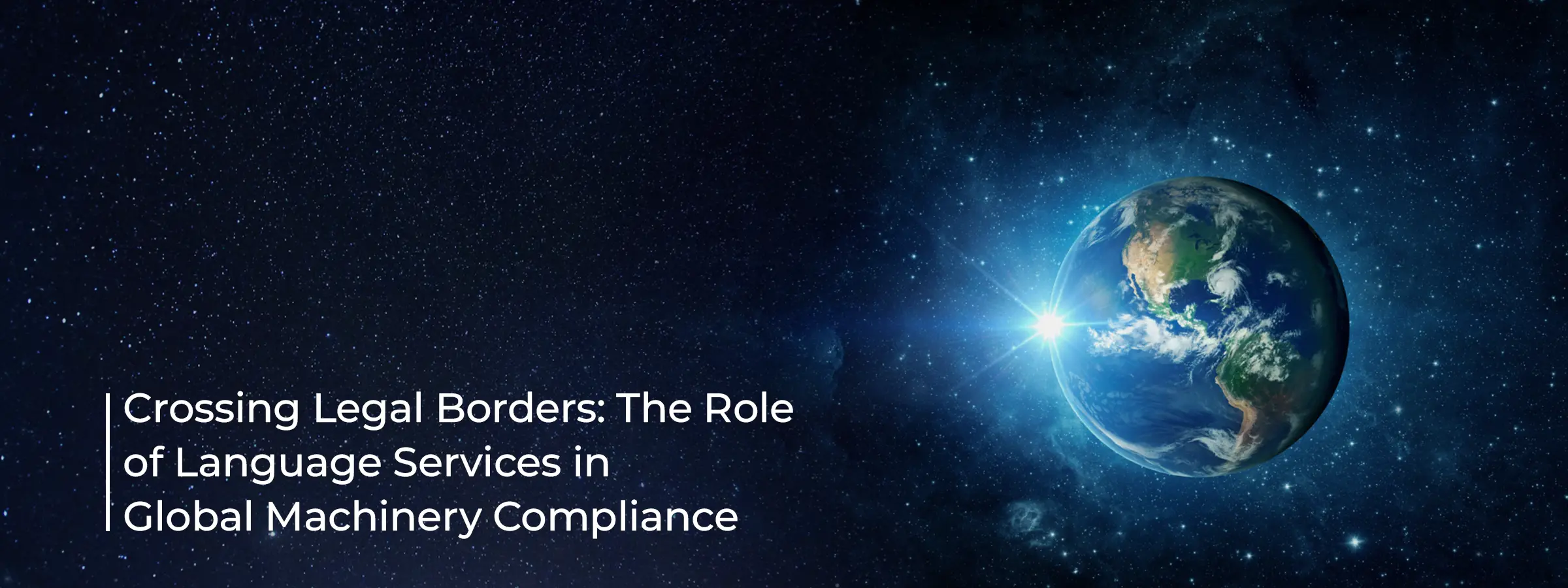
In the vast and complex world of the machinery industry, navigating the maze of global compliance requirements presents a formidable challenge. As machinery manufacturers expand their reach across international borders, they face many legal standards, safety regulations, and compliance protocols that vary significantly from one country to another. In this intricate dance of legalities, language services emerge as a critical ally, ensuring that crossing legal borders does not become an insurmountable hurdle. This blog post explores how language and communication improvements can profoundly impact legal and compliance efforts in the machinery industry.
At the heart of global machinery compliance lies the need to understand and adhere to diverse legal requirements. From the European Union's Machinery Directive to the Occupational Safety and Health Administration (OSHA) standards in the United States, each set of regulations demands meticulous attention to detail. The challenge is magnified when these documents are in a language different from that of the manufacturer's legal and compliance team. Herein lies the indispensable role of language services - translating legal documents and compliance materials accurately and efficiently, ensuring that nothing is lost in translation.
Effective communication with regulatory bodies, international partners, and local authorities is paramount for successful compliance. Language barriers can lead to misunderstandings, misinterpretations, and delays - obstacles that can be costly for machinery manufacturers. Professional translation and interpretation services facilitate clear, concise, and correct communication, bridging the gap between manufacturers and the global regulatory landscape. This level of clarity is crucial not only for submitting documentation and reports but also for negotiating terms and understanding international legal nuances.
As manufacturers expand globally, the workforce becomes increasingly diverse, necessitating compliance training that is accessible to all employees, regardless of their native language. Language services are pivotal in localising training materials, making complex legal concepts understandable to a multicultural workforce. This localisation goes beyond mere translation; it involves cultural adaptation to ensure the content is relevant and resonant with the audience. Such efforts enhance employee compliance awareness, fostering a safety culture and legal adherence across the organisation.
The accuracy of technical documentation, including safety manuals, operating instructions, and product specifications, is non-negotiable for legal compliance. Language services ensure that these critical documents are translated into the target markets' languages and are technically accurate and compliant with local regulations. This meticulous process reduces the risk of non-compliance penalties and reinforces the manufacturer's commitment to safety and quality.
In the machinery industry, compliance is not just a legal obligation - it's a competitive edge. Manufacturers that demonstrate a commitment to global compliance, facilitated by expert language services, earn the trust of customers, partners, and regulatory bodies. This trust translates into market access, brand reputation, and customer loyalty, underscoring the strategic value of investing in language and communication improvements.
Crossing legal borders in the global machinery industry requires more than just a passport—it demands a nuanced understanding of international compliance standards facilitated by expert language services. As legal and compliance teams navigate this complex landscape, the support of professional translators and interpreters becomes indispensable, transforming potential barriers into bridges of understanding. By leveraging language services, manufacturers can ensure that their machinery meets global standards, paving the way for international success. Language is not just a tool in global compliance - it's a key to unlocking the world's markets.
© 2024 WHITE GLOBE GROUP PVT LTD